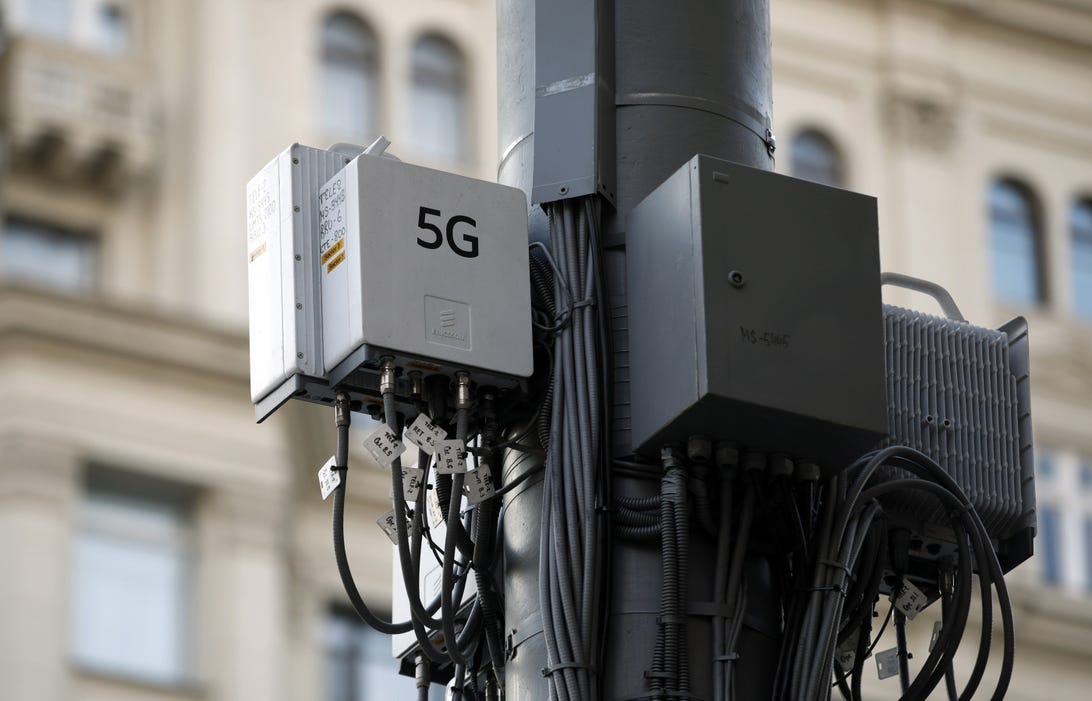



The rollout of 5G wireless hasn’t been smooth.
Getty Images
Airline companies filed an emergency request with the Federal Communications Commission Thursday, asking to further delay rollout of 5G wireless service near airports until further studies can prove the signals won’t disrupt critical airplane instruments.
Airlines for America, which represents 11 US passenger and cargo airlines including Delta, United, FedEx, UPS, Southwest and American, called on the regulatory agency to delay approval for 5G rollout near dozens of the country’s busiest airports, including Dallas-Fort Worth in Texas, John F. Kennedy in New York, Chicago O’Hare in Illinois and San Francisco International in California. The FCC earlier delayed AT&T and Verizon’s plans to offer new 5G service, which uses C-band airwaves, to Jan. 5.
“The Commission failed to provide a reasoned analysis that realistically and properly addresses the documented concerns of the aviation industry,” the trade group wrote in its filing, which was earlier reported by Bloomberg. Airlines have expressed concern that some 5G signals could interfere with radio altimeters, which use similar signals to measure how far above the ground an airplane is at any given time.
Airlines for America further said that if the FCC doesn’t act by Jan. 3, it may sue, seeking intervention by the courts. Airline executives earlier this month threatened they would divert or cancel flights in the affected areas, potentially affecting hundreds of thousands of passengers.
“It would be a catastrophic failure of government,” United Airlines CEO Scott Kirby told reporters, according to Reuters.
Verizon referred requests for comment to the CTIA wireless trade group, which didn’t immediately respond to a request for comment. AT&T also didn’t immediately respond to a request for comment. In the past, the wireless industry has said it will take precautions to make sure 5G doesn’t interfere with aircraft sensors. Carriers, along with experts from the FCC, have additionally said there are no serious interference issues.
The airline industry’s FCC filing is the latest in a series of efforts to slow 5G deployment. The trade group said that while it supports most efforts around this technology, it hasn’t been sufficiently convinced the new cellular signals won’t interfere with aviation equipment. It noted that airline companies have “repeatedly raised” concerns over the past year and a half that it says have not been addressed.
In November, the FAA warned about potential interference between key cockpit safety devices and cell towers on the ground transmitting 5G signals. And earlier this month, the FAA issued new directives to the airline industry warning that interference from 5G signals using the C-band spectrum could result in flight diversions, but the agency didn’t quantify the impact.
For everyday users, the new 5G C-band is expected to offer faster and wider-reaching signals, improving on the relatively short range and comparatively limited availability carriers have struggled with until now. Wireless companies are promoting 5G as both the next step technologically and a critical update offering faster internet speeds and reliability.
Meanwhile, the airline industry has faced criticism for raising concerns at such a late stage in 5G deployment. “The FAA position threatens to derail the reasoned conclusions reached by the FCC after years of technical analysis and study,” said an earlier letter sent to the current FCC chair and signed by Republicans and Democrats. The former chairs who signed on were Ajit Pai, Tom Wheeler, Mignon Clyburn, Julius Genachowski, Michael Copps and Michael Powell.
The Biden administration is working with the FCC and the aviation industry to resolve the issues.
